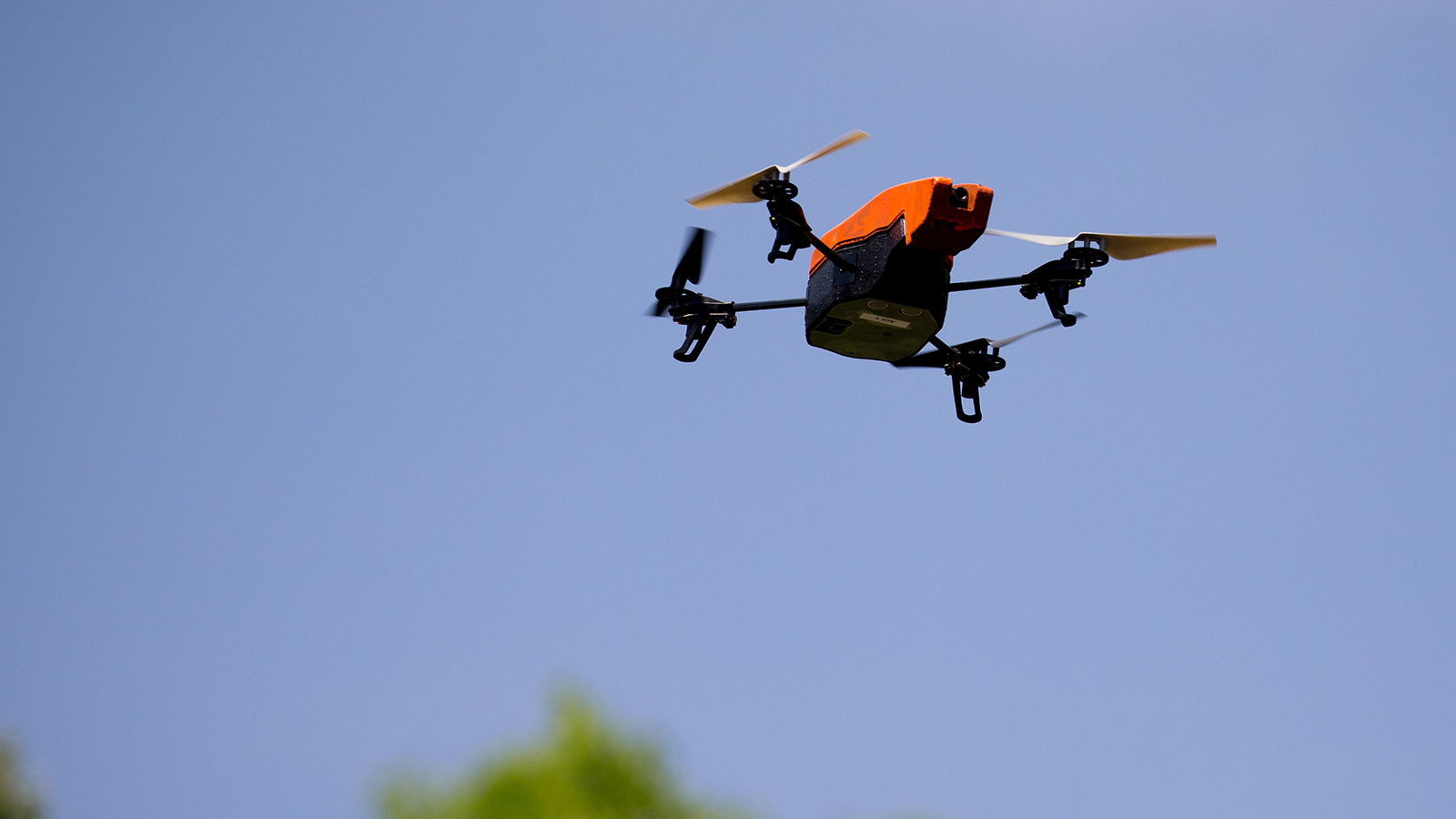Stay Up to Date
Submit your email address to receive the latest industry and Aerospace America news.
The new bill would allow federal officials to decide whether to destroy a drone if it's in unauthorized airspace
The FAA authorization bill that is headed for President Donald Trump’s desk is drawing mixed reactions from the drone community because of language that gives the agency the power to set rules that permit federal authorities to “disrupt” or “destroy” any drones deemed a “credible threat,” as the bill puts it.
The Senate on Wednesday, in a 93-6 vote, passed a version of the FAA Reauthorization Act of 2018 that was previously negotiated with the House, which approved the bill last week by a 398-23 vote.
If Trump signs the bill, “there might be litigation over a number of things, including whether those powers granted to the FAA are valid,” said attorney Thaddeus Lightfoot, a Minneapolis-based partner at the Dorsey and Whitney law firm who has advised clients on drone-related issues.
FAA rules already bar people from flying drones near wildfires, airports or federal buildings, but the new bill takes this a step further by granting authority to the agency and the Justice and Homeland Security departments to choose whether to destroy such a drone. Some in the aviation community view this as a necessary safety measure while others fear a drone could be destroyed without a warrant if the FAA does not follow up with rules to define these new powers.
“It gives the executive branch tremendous power in determining when to shoot down a drone and Congress has provided no criteria,” Lightfoot said. This rule “potentially sets this scope of federal pre-emption on a collision course” with any laws that states create.
Other language in the bill gives the FAA the option to add a requirement for recreational operators to pass a quiz about aviation regulations and submit to a background check by the Transportation Security Administration. Today, only commercial drone pilots are required to complete that process, for instance, to fly for filmmakers or agricultural companies. The bill ends the exemption to those requirements for recreational operators that was contained in the FAA reauthorization bill in 2012. The bill does not change the requirements for everyone in the U.S. who owns a drone heavier than 250 grams to register online with the FAA for $5 and include an identifying “tail number” sticker on the vehicle. It keeps the existing rules for drone flight, including not flying higher than 400 feet or within 5 miles (8 kilometers) of an airport.
Aviation groups are divided about the bill’s attempt to ensure safe drone flight by exerting new FAA authority. One of those who supports the provision is Peter Bunce, CEO of the General Aviation Manufacturers Association. He told me “increased regulation that keeps recreational drones away from airspace or airports where they are not supposed to be, from the flight paths of manned aircraft, makes these machines more reliable.” Bunce in August signed onto a joint letter to the Senate with other aviation groups including the Air Traffic Control Association calling for a provision to “fully regulate recreational and hobby [unmanned aircraft].”
Tyler Dobbs, government affairs representative for the Academy of Model Aeronautics, said mandating flight tests and background checks for educators or people flying recreationally in their backyards could “create an uphill battle” for education groups and charities that fly drones. “We hope the FAA would issue a memorandum” after the bill is passed to resume the exemption for recreational operators, including after-school clubs that have an educator fly a drone that is registered with the agency, Dobbs said.
Leaving out the exemption for recreational drones is “controversial,” but “it depends on how the FAA will exercise that authority,” said Melissa Rudinger, vice president of government affairs at the Aircraft Owners and Pilots Association. “There are very few things that are specified in the bill,” Rudinger said, adding that aviation groups including AOPA can collaborate with the FAA on rulemaking committees if the bill passes to ensure the agency provides paths for “safe integration” of commercial and recreational drones into the U.S. airspace.
About Tom Risen
As our staff reporter from 2017-2018, Tom covered breaking news and wrote features. He has reported for U.S. News & World Report, Slate and Atlantic Media.
Related Posts
Stay Up to Date
Submit your email address to receive the latest industry and Aerospace America news.




